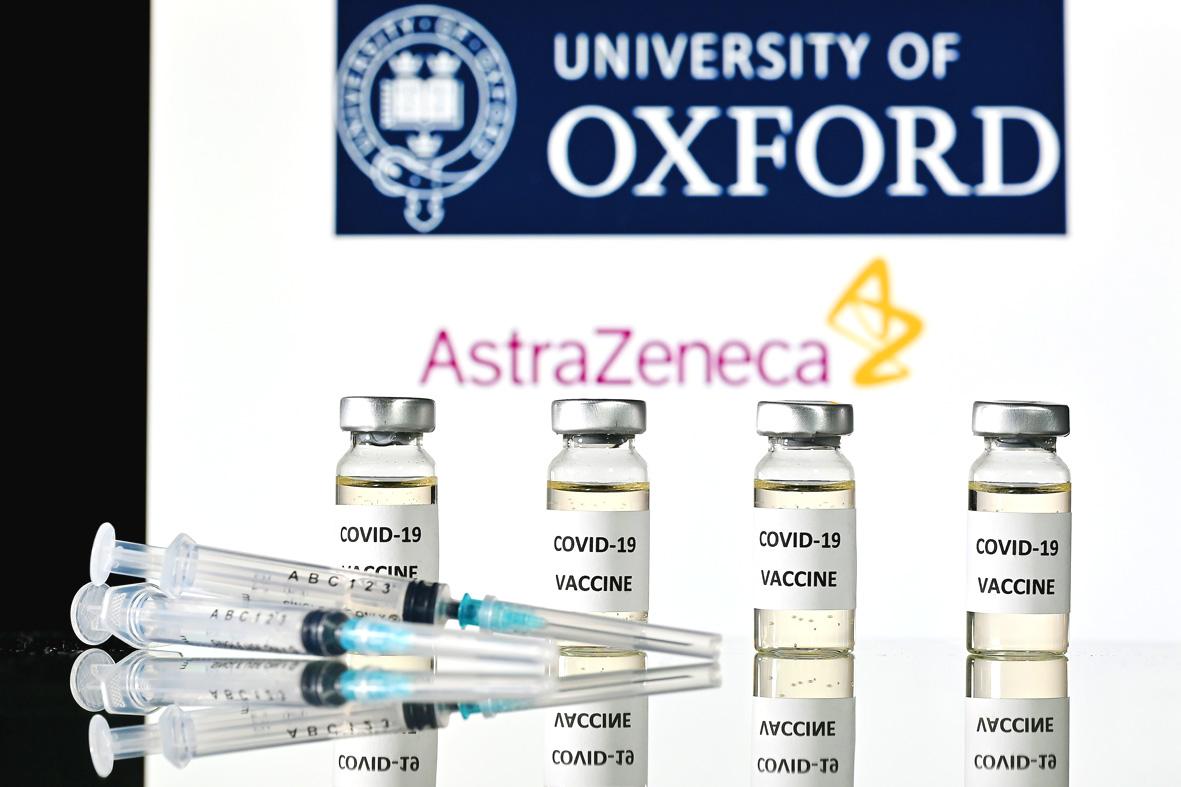Children are less likely to have priority in getting vaccinated against COVID-19, Lee Ping-ing (李秉穎), a member of the Central Epidemic Command Center’s (CECC) specialist advisory panel, said yesterday.
Lee, a physician in National Taiwan University Hospital’s division of pediatric infectious diseases, made the remark on the sidelines of a conference on the effects of COVID-19 on children’s health in Taipei.
Clinical trials of COVID-19 vaccine candidates have not included children, he said, adding that statistical data suggests that children do not have a higher risk of infection and that the risks of them developing serious complications or dying are also relatively low.

Photo: AFP
When effective vaccines become available in Taiwan, children are unlikely to be at the front of the vaccination line, Lee said.
Three types of vaccine candidates have progressed faster: messenger RNA (mRNA) vaccines, vaccines based on adenoviral vectors and vaccines based on recombinant proteins, he said.
The mRNA vaccines are easier and faster to mass produce, but they present higher risks of systemic or local adverse events, and require ultra-low temperatures for storage and transport, Lee said.
The vaccines based on adenoviral vectors are considered relatively safe, but they have not been widely administered as a commercial vaccine, he said, adding that the vaccine might be less effective in people who already have antibodies that neutralize adenoviruses, and it is not suitable for people with weakened immune systems.
The recombinant-protein-based vaccines are thought to be the safest and most efficient, but they are more difficult to produce quickly, Lee said.
On Friday, Centers for Disease Control Deputy Director-General Chuang Jen-hsiang (莊人祥), the CECC’s spokesperson, said that Taiwan can buy the vaccine that Oxford University is developing with British drugmaker AstraZeneca through the COVAX allocation platform.
Foreign media have reported that the vaccine shows an “encouraging” immune response in older adults, and that 99 percent of those given the vaccine in a mid-term clinical trial developed antibodies.
Asked if Taiwan can buy the vaccine, Chuang said that the center has started negotiations to acquire it in August and September next year, but he declined to provide further details.
Taiwan can buy the vaccine through COVAX, he said, adding that the government has also contacted the manufacturer regarding issues such as quantity and timing.
The Oxford-AstraZeneca vaccine is expected to be cheaper than the one developed by Pfizer in collaboration with BioNTech, and easier to ship, as it can be stored at 2°C to 8°C, Chuang said.
The Pfizer vaccine, an mRNA vaccine, must be stored at ultra-low temperatures — as low as minus-80°C.
The CECC has budgeted NT$11.5 billion (US$399.03 million) for the purchase of 30 million doses of a COVID-19 vaccine, which would be enough to vaccinate 15 million people, Chuang said.

Taiwanese can file complaints with the Tourism Administration to report travel agencies if their activities caused termination of a person’s citizenship, Mainland Affairs Council Minister Chiu Chui-cheng (邱垂正) said yesterday, after a podcaster highlighted a case in which a person’s citizenship was canceled for receiving a single-use Chinese passport to enter Russia. The council is aware of incidents in which people who signed up through Chinese travel agencies for tours of Russia were told they could obtain Russian visas and fast-track border clearance, Chiu told reporters on the sidelines of an event in Taipei. However, the travel agencies actually applied

New measures aimed at making Taiwan more attractive to foreign professionals came into effect this month, the National Development Council said yesterday. Among the changes, international students at Taiwanese universities would be able to work in Taiwan without a work permit in the two years after they graduate, explainer materials provided by the council said. In addition, foreign nationals who graduated from one of the world’s top 200 universities within the past five years can also apply for a two-year open work permit. Previously, those graduates would have needed to apply for a work permit using point-based criteria or have a Taiwanese company

The Shilin District Prosecutors’ Office yesterday indicted two Taiwanese and issued a wanted notice for Pete Liu (劉作虎), founder of Shenzhen-based smartphone manufacturer OnePlus Technology Co (萬普拉斯科技), for allegedly contravening the Act Governing Relations Between the People of the Taiwan Area and the Mainland Area (臺灣地區與大陸地區人民關係條例) by poaching 70 engineers in Taiwan. Liu allegedly traveled to Taiwan at the end of 2014 and met with a Taiwanese man surnamed Lin (林) to discuss establishing a mobile software research and development (R&D) team in Taiwan, prosecutors said. Without approval from the government, Lin, following Liu’s instructions, recruited more than 70 software

Chinese spouse and influencer Guan Guan’s (關關) residency permit has been revoked for repeatedly posting pro-China videos that threaten national security, the National Immigration Agency confirmed today. Guan Guan has said many controversial statements in her videos posted to Douyin (抖音), including “the red flag will soon be painted all over Taiwan” and “Taiwan is an inseparable part of China,” and expressing hope for expedited reunification. The agency last year received multiple reports alleging that Guan Guan had advocated for armed reunification. After verifying the reports, the agency last month issued a notice requiring her to appear and explain her actions. Guan